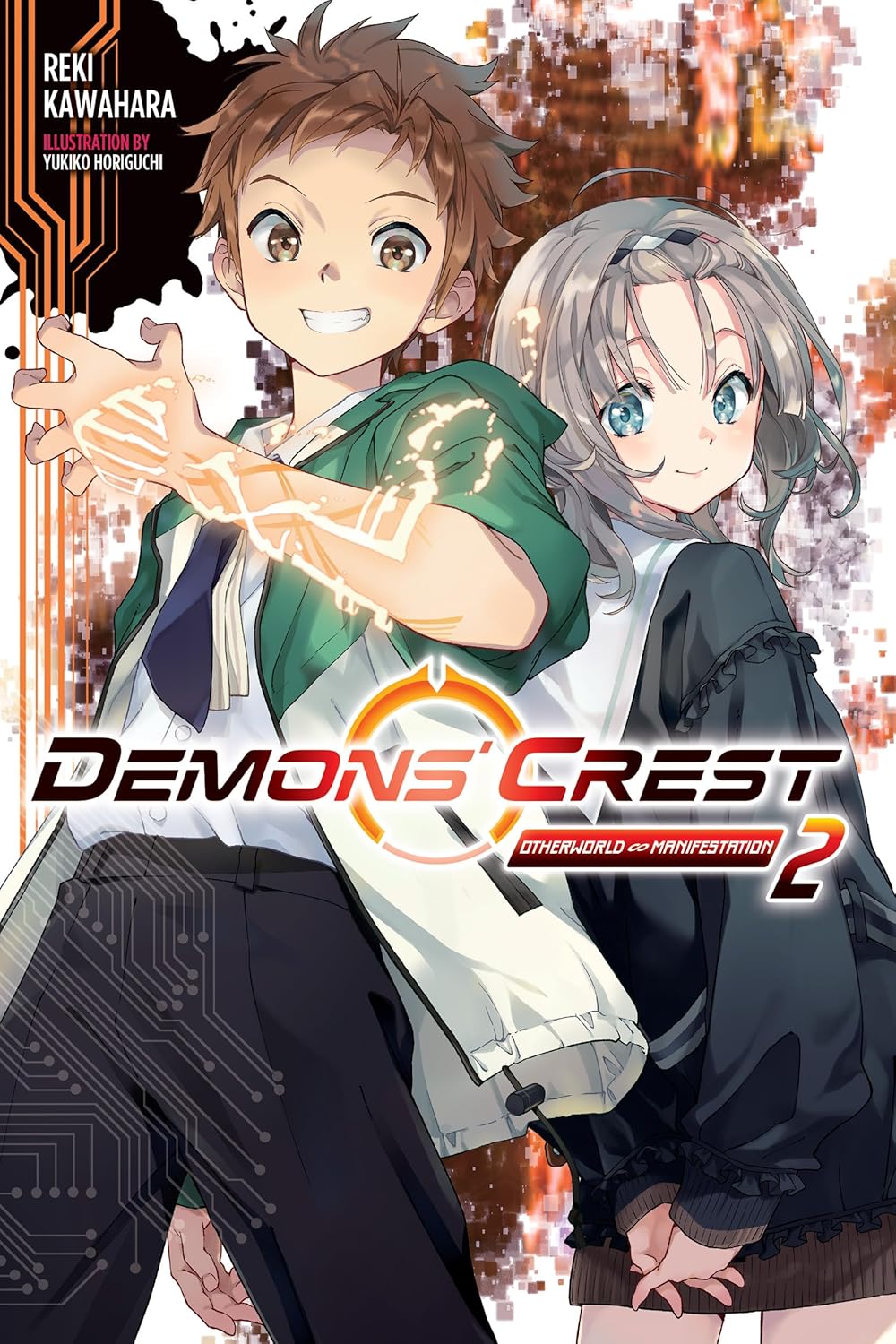By Reki Kawahara and Yukiko Horiguchi. Released in Japan by Dengeki Bunko. Released in North America by Yen On. Translated by James Balzer.
I’ve mentioned before that I am not a gamer, and what this means that most of what I know about MMORPGs and the like comes from these sorts of light novels. As you can imagine, what this has mostly ended up doing is filling me with a deep desire not to game. Because man, gaming can be boring. Or at least, gaming can be boring if it’s being written by Reki Kawahara. Usually I have no issues with his action scenes, but that’s mostly as they’re being taken care of by characters I’ve known for ten years. But this is a new series that unfortunately is not really doing as many different things as I’d like (he says in the afterword that this is basically the SAO game system but with character classes added), and so, like so many, other light novels of this type, it reads like the author wants us to read their weekly gaming log. There’s a plot in this, which may possibly be intriguing. But we get less of it this time.
Sawa has a secret to tell everyone, which is that she is, in fact, possessed by a demon. Unfortunately, the demon only has a few minutes to tell them what they have to do next: go back into the game itself and find their childhood friend Nagi, who is still inside it. When they do so, they find that the game is a lot more realistic than it had been when they were just playing it for fun, and also that Nagi may in fact be trapped by one of the big bads, which requires them to essentially sneak in and perform a series of near-impossible tasks to get anywhere near Nagi. And this doesn’t even get into the fact that there are various other bad guys trying to stop them. And even if they do find Nagi and get back to reality, reality still sucks at the moment. Fortunately, they do have the help of the handsome playboy (well, for a 12-year-old) Niki.
There is a rather interesting plot way at the back of this. Sawa is not the only one possessed by a demon – in fact, the entire cast may each have a demon inside of them, relating to Solomon’s Demons, a popular thing in games. And, of course, the demons are quite different from the kids they inhabit, which could possibly lead some of them into betraying their friends. I’m definitely more interested in this than I am in Sugamo, who is still trying to do his own little Lord of the Flies and establish that he’s the best and everyone else needs to be executed (we all know that’s where he’s headed). As for the game world, when they’re wandering around a town and interacting with suddenly interesting NPCs, it’s fine. But most of it, as I said, is battles that don’t advance the plot beyond “they win after struggling”.
The third volume of this series comes out in Japan next week, so it will be a bit, and perhaps I will forget how much this bored me before it comes out. This sentence is here to jog my memory. Stick to Kawahara’s other series.
